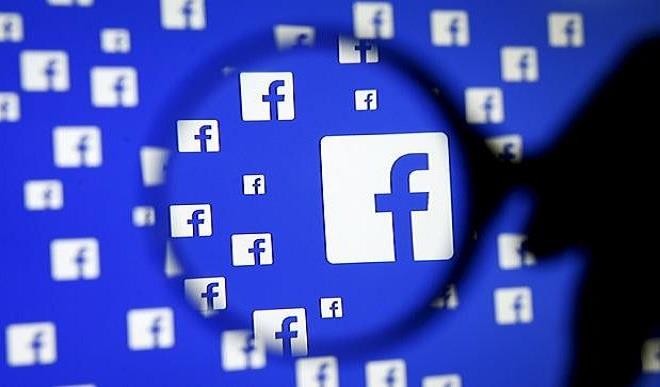Facebook hate groups include numerous American police officers
According to an investigative report published 14 June 2019 by Reveal, a non-profit news organization run by the US Center for Investigative Reporting, hundreds of active and retired police officers and law enforcement personnel in America are congregating in private Facebook groups where they engage in open racism. Their activities are meant to intimidate and […]

According to an investigative report published 14 June 2019 by Reveal, a non-profit news organization run by the US Center for Investigative Reporting, hundreds of active and retired police officers and law enforcement personnel in America are congregating in private Facebook groups where they engage in open racism. Their activities are meant to intimidate and spread hate against non-white people (blacks, Asians, Indians, Latinos, etc.) as well as Muslims. Their actions also influence mass killings of innocent people and open terrorism against targeted groups.
To find the cops with connections to extremist and hate groups, Reveal built lists of two different types of Facebook users: members of extremist groups and members of police groups. They wrote software to download these lists directly from Facebook and ran those two datasets against each other to find users who were members of at least one law enforcement group and one far-right group. Reveal reportedly got 14,000 hits.
Of course, the Reveal investigators did not assume that everyone in a police Facebook group was an actual officer, as many could be relatives of police officers or just really into law enforcement. So, the investigators spent months poring over individual Facebook pages, looking for clues, such as photos of the officer in uniform, or posts about police events, or notes mourning lost cops. They then corroborated what they found on Facebook with additional research, which includes calling the police departments to confirm whether or not the individual either still or had once worked there.
Ultimately, Reveal confirmed that almost 400 members of the various hate groups were indeed either currently employed as police officers, sheriffs or prison guards or had once worked in law enforcement.
The hate messages are atrocious. For example, Lonnie Allen Brown of the Kingsville Police Department in Texas, a member of three Islamophobic groups, reportedly posted an image that read: “Islam. A cult of oppression, rape, pedophilia and murder cannot be reasoned with!”
The police are employed to safeguard peace and protect people. It is an irony that some of these same law enforcement personnel perpetrate these hate crimes. The obvious question that comes to mind is how these officers can separate their prejudice on race and religion, which they display so vividly as members of hate and sometimes violet groups, from the their “day” job of protecting everyone – white, black, Christian, Muslims, Jews, and so on.
Several police officers contacted for the Reveal investigation countered that they have a First Amendment right to opine on social media, even if those opinions are unpopular or offensive to some people. The Reveal report stated that “While civilians enjoy First Amendment protection from government censorship or harassment, the U.S. Supreme Court has ruled that public agencies such as police departments may penalize their employees for speech and behavior in certain cases.”
Peter Simi, an associate professor of sociology at Chapman University who has studied extremist groups for more than 20 years, was quoted in the Reveal report as saying that biased views like those expressed in these Facebook groups inevitably influence an individual’s decision-making process. The perceptions we have about the world at large drive the decisions we make. “To think that people could completely separate these extremist right-wing views from their actions just isn’t consistent with what we know about the decision-making process.”
According to Simi, white supremacists and other extremists have been working hard to integrate their hateful views into society in as many ways as possible.
It is as if Facebook was developed as a platform for people to spread hate. The report suggests that while Facebook vows that it prioritizes meaningful content, its algorithms also appear to play a role in strengthening biases: “The more extreme groups we joined, the more Facebook suggested new – and often even more troubling – groups to join or pages to like. It was easy to see how users, including police officers, could be increasingly radicalized by what they saw on their news feed.”
Moreover, Megan Squire, a computer science professor from Elon University in North Carolina, who has studied hate groups on Facebook for years and maintains her own database, says that the social media platforms, and especially closed groups, are used by hate groups such as white supremacists to plan events and build camaraderie. “Charlottesville was planned on Facebook,” Squire said. “Extremists are definitely using Facebook groups to plan physical, real-world events or just to make their lives a little smaller, to find friends.”
Sadly, while groups with overt neo-Nazi, white supremacist or Ku Klux Klan names get shut down relatively quickly by Facebook, hate groups have wised up in response. “As has happened elsewhere on the internet, extremist groups on Facebook often use in-jokes and subtle references in their names to avoid takedown policies. Moderators of closed groups control who can join, and on Facebook, cops can hide who they really are – using false names and listing pretend jobs.”
These unintended consequences of social media are quite unfortunate, and the problem is severely worsened by Facebook’s inability to handle the social problems created by its platform.
